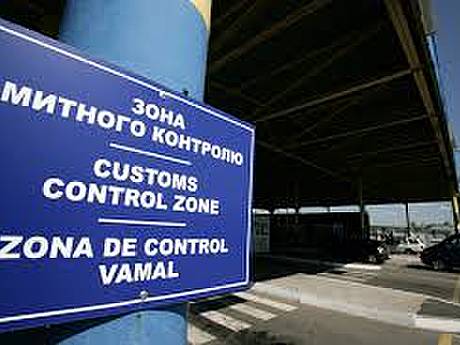
New rules for customs clearance at the Ukrainian border have extremely alarmed importers and almost completely halted freight at the customs. The reason is new government resolution No. 724, which sets indicative prices for commodities that move across the border. This step, which theoretically should eliminate risk operations for imports, in fact created additional obstacles for businesses, transferred clearance procedures in manual mode, the Ukrainian League of Industrialists and Entrepreneurs (ULIE) claims.
"The adopted resolution creates a lot of inconvenience for entrepreneurs and hinder the establishment of clear cooperation with foreign partners," ULIE President Anatoliy Kinakh said. "This is a paradox – fair, legally working importers with direct and transparent contracts envisaging serious obligations will be hurt most. They will have to explain each difference between declared and benchmark prices. The introduction of the indicative customs prices will only exacerbate the corruption component at the customs. The expediency of such a decision is unclear."
The ULIE believes that the newly introduced procedure is aimed primarily at getting state revenue – the government is now considering the possibility of splitting thus collected funds between the state and local budgets. It is understandable that the customs services are interested in this model, which will cause additional pressure on business.
"By trying to fill in the budget, one can damage businesses, and not only their trust will be lost, but also the Ukrainian economy may be in jeopardy. In addition, we see again an example when a notorious document has been prepared behind closed doors, as there were debates with the business community," Anatoliy Kinakh.
Many questions have asked about the new regulations. The national legislation, the obligations of Ukraine to the WTO say that the primary method of establishing the customs value is that of the contract. Although de jure no new methods of determining the customs value have been introduced. The State Fiscal Service of Ukraine claims that the government's resolution is only a recommendation for the customs to analyze the conditions of a deal in greater detail, however, in practice the customs use the "manual mode" with own databases to determine the customs value, ignoring what business contracts stipulate, and so on.
It means in practice that dozens of big companies with large volumes of transactions with foreign partners are considered by the customs as risky ones. The consideration of cases will take a few days, all of which will mean the violation of the terms of delivery and the loss of a certain amount of money. Everything will depend on the human factor – the competence of each individual customs officer and his or her ability to interpret the new resolution.
The ULIE stresses that such steps must be discussed with domestic entrepreneurs because they do business amid the economic crisis and have the right to expect support from the state. In this case, the new customs clearance rules require a compromise solution to be elaborated through a constructive dialogue between local businesses and the government. What is more, both sides are interested in greater transparency of customs regulation.